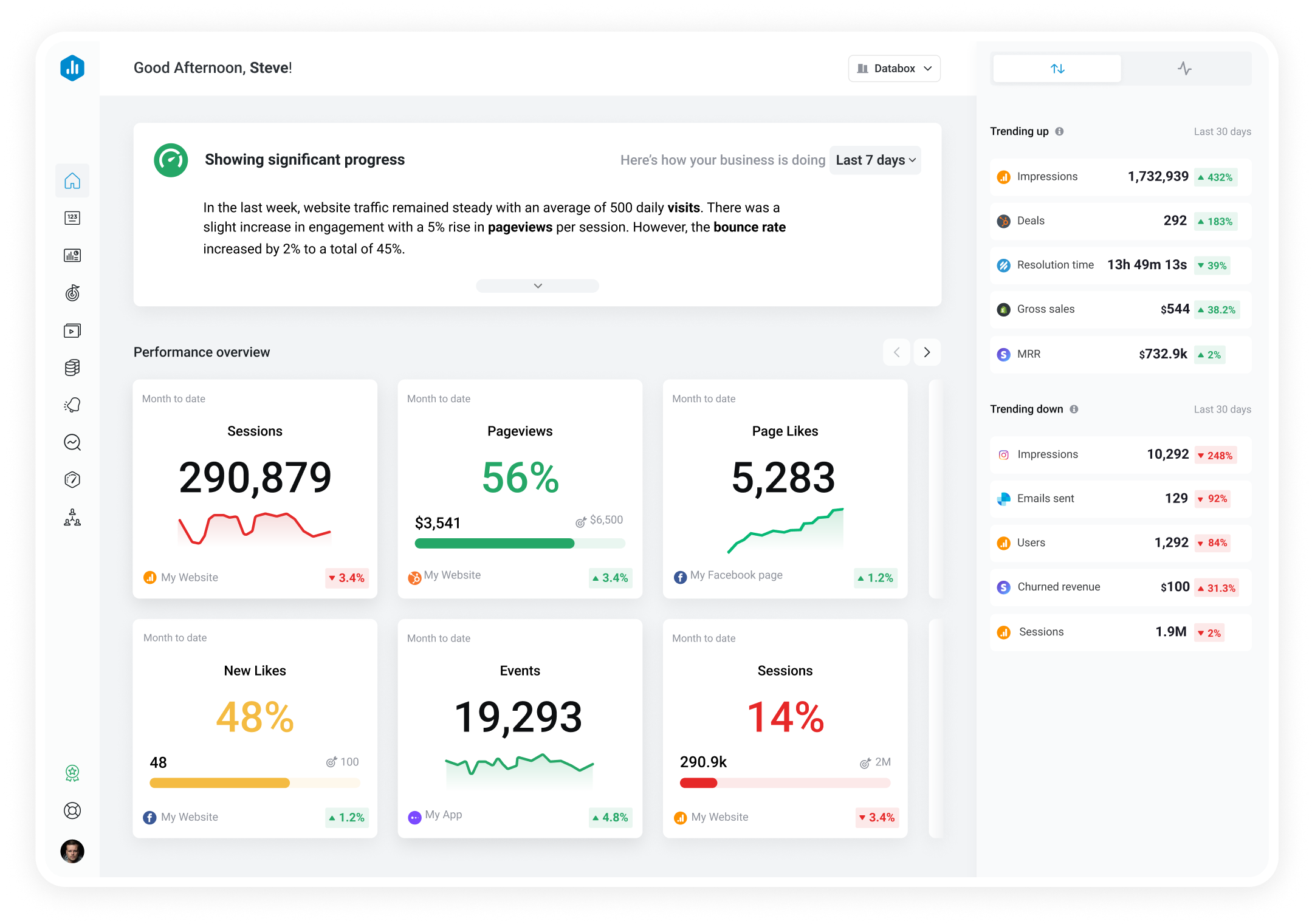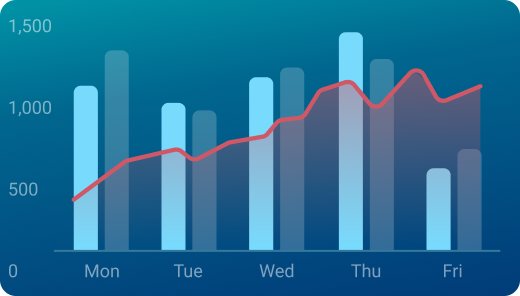Track all of your key business metrics from one screen
GET STARTED
 QuickBooks
Overdue Invoices by Customer
QuickBooks
Overdue Invoices by Customer This metric shows a list of customers who have unpaid invoices past their due date, helping you stay on top of overdue payments and improve cash flow management.
With Databox you can track all your metrics from various data sources in one place.

Used to show comparisons between values.
Databox is a business analytics software that allows you to track and visualize your most important metrics from any data source in one centralized platform.
To track Overdue Invoices by Customer using Databox, follow these steps:
 Goals
Goals Scorecards
Scorecards Metric Digest
Metric Digest Metric Builder
Metric Builder Data Calculations
Data Calculations Performance Screen
Performance ScreenThe QuickBooks Cash Flow Overview dashboard provides a snapshot of net cash flow, bank balance, open and overdue invoices, and cash flow from operating, financing, and investing activities. It helps track financial health and cash movements.

This report gives a snapshot of financial results using QuickBooks data on income, expenses, cash flow, balance sheet, and overall financials, supporting informed financial decisions.

